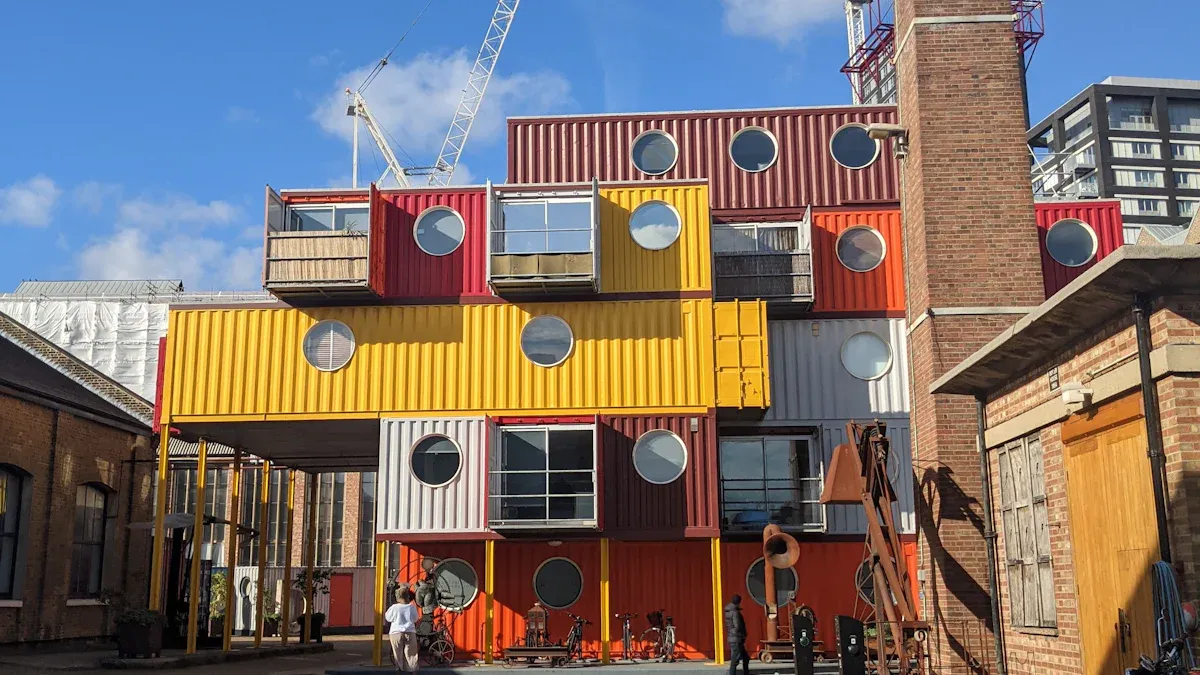
Les destinations de voyage du monde entier favorisent désormais les solutions de maison préfabriquées pour leur vitesse, leur flexibilité et leur conception durable. Le marché mondial des bâtiments modulaires atteindra le $215 milliards d'ici 2025, tiré par la demande de maisons préfabriquées respectueuses, logement préfabriqué abordableet des concepts innovants comme le maison de capsule spatiale.
Prefab House for Rapid Accommodation Deployment
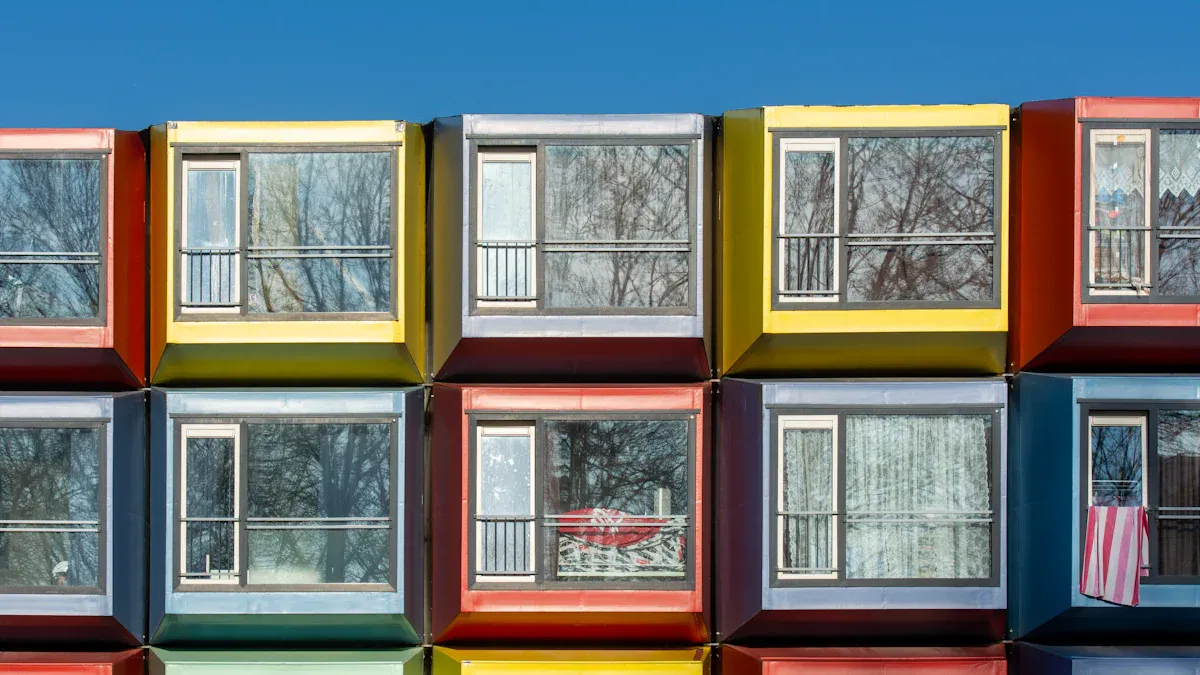
Meeting Surges in Tourist Demand
Tourist hotspots often face sudden increases in visitor numbers. Prefab houses offer a fast and efficient way to meet these surges. Operators can quickly install modular units, providing extra lodging without long construction delays. Prefab capsule houses, in particular, allow for rapid deployment and flexible configuration. Campsites use these units as standard camping options, which improves both operational efficiency and guest experience. Scenic B&Bs and popular tourist areas benefit from customizable designs, creating unique and attractive accommodations. The modular nature of these houses supports quick scaling, making them ideal for high-demand locations.
- Prefab capsule houses enable rapid expansion of lodging capacity.
- Campsites and scenic spots use capsule houses for easy installation and improved quality.
- Customizable shapes and colors help destinations stand out.
- Modular design supports fast scaling and higher rental returns.
- Uses extend to mobile offices and temporary showrooms.
Prefabrication also brings significant time and cost savings. Off-site manufacturing allows for building components while preparing the site, reducing delays and labor needs. Factory settings ensure quality and precision, leading to faster assembly and fewer setbacks.
| Aspect | Prefab Houses (Modular Construction) | Construction traditionnelle |
|---|---|---|
| Time Savings | 30-45% faster completion | Baseline (100%) |
| Project Duration Impact | 7-11 months shorter | Baseline (24 months) |
| Économies de coûts | Up to 45% reduction | Baseline |
| Price Variability | More predictable | Less predictable |
| Retour de retour | Faster occupancy and returns | Slower returns |
Pop-Up Resorts and Event Housing
Travel destinations use prefab construction to create pop-up resorts and event housing. Companies like AirClad provide portable, luxury accommodations for festivals and temporary events. These structures can be flat packed and self-assembled, offering flexibility and comfort. Major events such as the Coachella Valley Music and Arts Festival use modular hotels and glamping units for quick setup. Remote eco-resorts, including the Fogo Island Inn and Treehotel, rely on modular building techniques to minimize environmental impact while delivering high-quality experiences.
Prefabricated units suit pop-up resorts, glamping sites, and event venues due to their scalability and ease of relocation. Operators can dismantle and move these structures with minimal material loss. Minimal site preparation preserves natural environments, which is valuable for eco-tourism. Prefab hotels, such as those from Prefabex, offer customizable options for festivals, conventions, and seasonal tourism. Their flexibility allows operators to adjust capacity and location as needed, making them a cost-effective and sustainable choice.
Prefab House in Remote and Challenging Locations
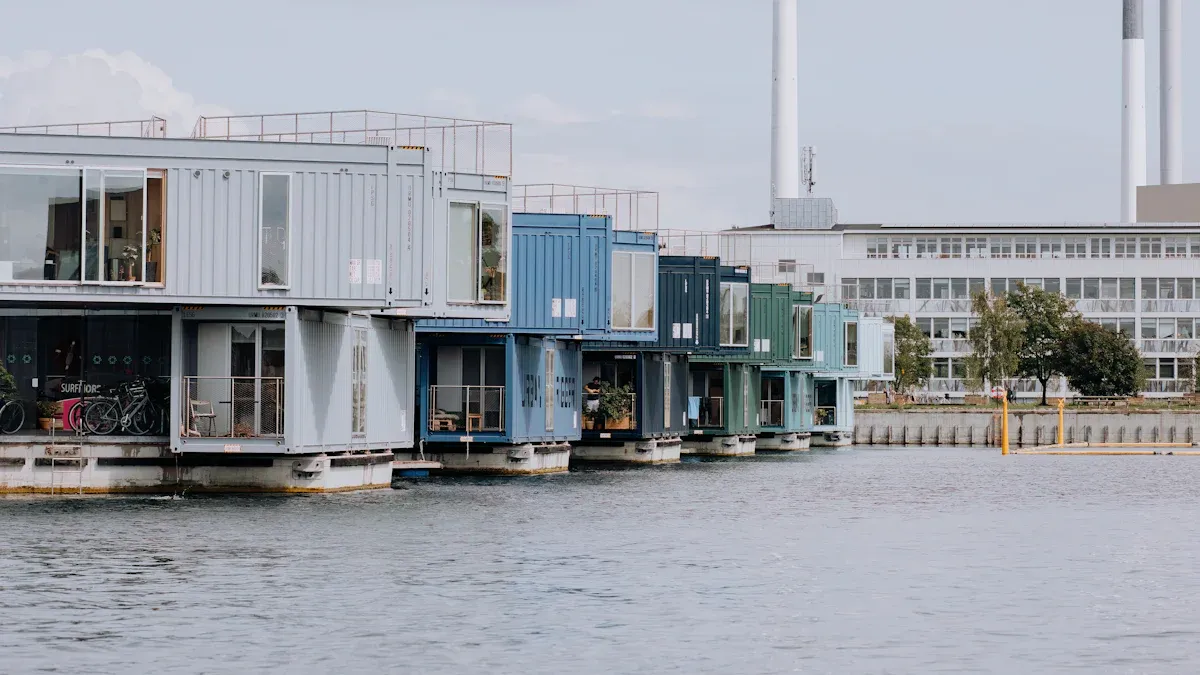
Accessing Off-the-Grid Destinations
Travel destinations in remote areas often struggle with limited infrastructure and difficult terrain. Prefab House solutions help operators reach these off-the-grid locations by delivering modular units that require minimal on-site construction. Many projects manufacture modules off-site, which reduces the need for skilled labor in places where it is scarce. When teams hire local workers and buy materials nearby, they support the local economy and build stronger community ties. For example, the Rural Homes initiative in Norwood, Colorado, provides affordable homes for essential workers. This approach keeps teachers, medical staff, and government employees living close to their jobs, which helps stabilize the local economy.
Prefab House projects in remote areas can boost local employment and encourage the use of local resources, making tourism development more sustainable.
Overcoming Harsh Environments
Building in deserts, mountains, or polar regions presents unique challenges. Prefab House designs address these obstacles with smart planning and technology. Operators use several strategies to ensure successful delivery and assembly:
1. They conduct detailed site surveys to understand terrain and access routes. 2. Designers create smaller, lightweight modules for easier transport and assembly. 3. Teams use advanced transportation, such as helicopters or specialized trucks, to reach difficult sites. 4. Deliveries are planned around seasonal weather to avoid hazards like snow or heavy rain. 5. Local experts help optimize routes and schedules, ensuring smooth operations.
These steps help operators overcome narrow roads, steep slopes, and unpredictable weather. Prefab House solutions make it possible to bring comfortable, high-quality lodging to even the most challenging destinations.
Prefab House Adaptability for Upgrades and Trends
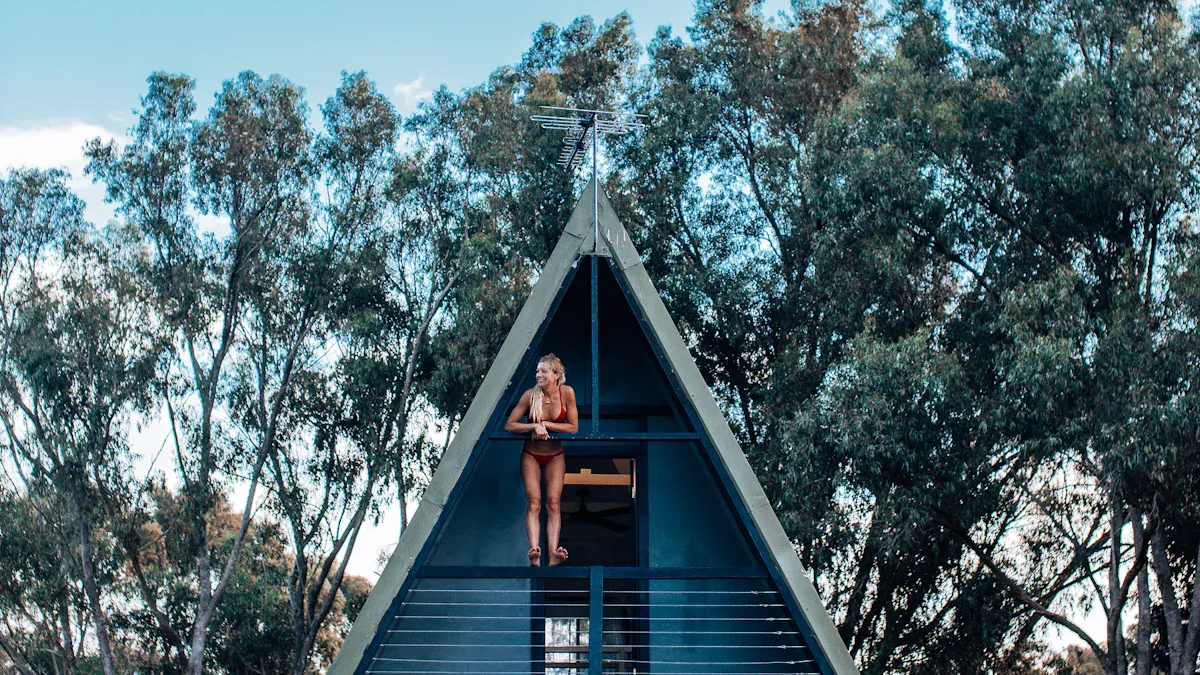
Modular Expansion for Growing Destinations
Tourism destinations often need to grow quickly to meet rising demand. Modular expansion allows operators to add new units or amenities with minimal disruption. Prefab House designs use factory-built modules that connect easily on-site. This approach supports rapid scaling, letting resorts or hotels increase capacity as needed. Operators can add extra rooms, lounges, or even entire wings without lengthy construction. The process saves time and reduces costs, making it easier for destinations to stay competitive.
Modular systems also help destinations respond to changing trends. If a location wants to offer new experiences, such as wellness retreats or family suites, they can add specialized modules. This flexibility ensures that destinations remain attractive to travelers with different needs.
Customization for Unique Guest Experiences
Modern travelers seek memorable and personalized stays. Prefab House solutions support this goal through extensive customization options:
- Customizable layouts, finishes, and features tailored to each brand’s identity.
- Rapid deployment with pre-finished units that minimize site disruption.
- Scalable solutions for resorts, boutique hotels, and eco-resorts.
- Sustainable materials and energy-efficient systems for eco-conscious guests.
- Modular room layouts for business meetings, family gatherings, or quiet retreats.
- Smart room technology, such as voice-activated controls and digital concierge services.
- Interiors that blend modern design with local cultural elements.
These features help hospitality businesses stand out. Operators can create unique environments that reflect local culture or specific guest preferences. Prefab House designs also support eco-friendly initiatives, using recycled materials and energy-saving systems. This approach appeals to travelers who value sustainability and comfort.
Prefab House Eco-Friendly and Sustainable Practices
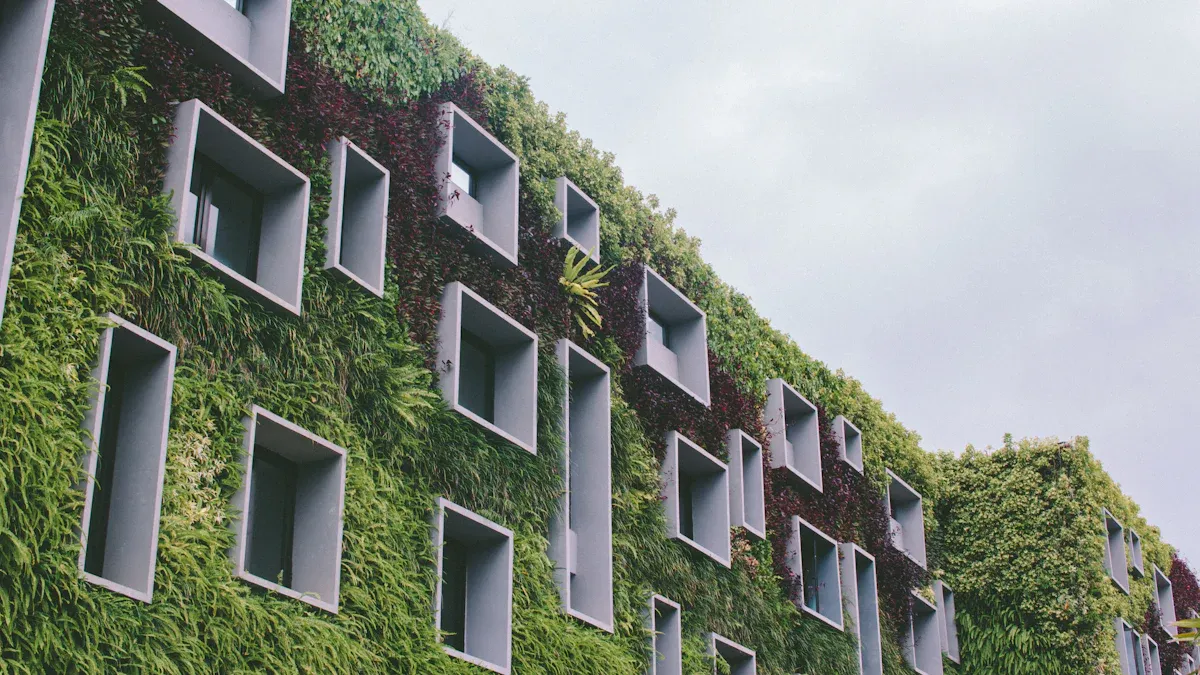
Reducing Environmental Footprint
Travel destinations increasingly choose sustainable building solutions to protect natural environments. Prefab House designs use energy-efficient features such as solar panels, smart insulation, and recyclable materials. These choices help lower the environmental footprint of tourism developments. Operators can install modular units in remote or sensitive areas with minimal disturbance to the land and wildlife.
- Prefabrication minimizes construction waste and reduces the time needed on-site, which lowers emissions.
- Life cycle assessments show that using prefab methods in hotel rooms cuts material waste and carbon emissions during renovations.
- Prefabricated buildings have a lower carbon footprint than traditional construction, especially when using green materials and optimized logistics.
| Méthode de construction | GHG Emissions (kgCO2-eq/m2) | Carbon Emission Reduction Compared to Traditional |
|---|---|---|
| Traditional | 281.56 | N / A |
| Prefabricated | 258.86 | 8.06% |
Many prefab developments also include renewable energy solutions. Solar panels, rainwater collection, and green roofs support sustainable water and energy management. These features help destinations meet global sustainability goals.
Attracting Eco-Conscious Travelers
Eco-conscious travelers look for accommodations that match their values. Prefab House options attract these guests by blending comfort with environmental responsibility. Modular and portable designs allow for easy setup with little impact on the landscape. Energy-efficient systems, advanced insulation, and the use of recycled materials further reduce energy use and carbon emissions.
- Many units support off-grid living with solar power and energy-saving appliances.
- Quick installation and minimal site disruption preserve natural habitats.
- Smart features and modern design make sustainable travel appealing and comfortable.
Travelers who care about the planet often choose destinations that offer eco-friendly lodging. Prefab House solutions help operators meet this demand, supporting the growth of sustainable tourism.
Prefab House Consistent Quality and Safety
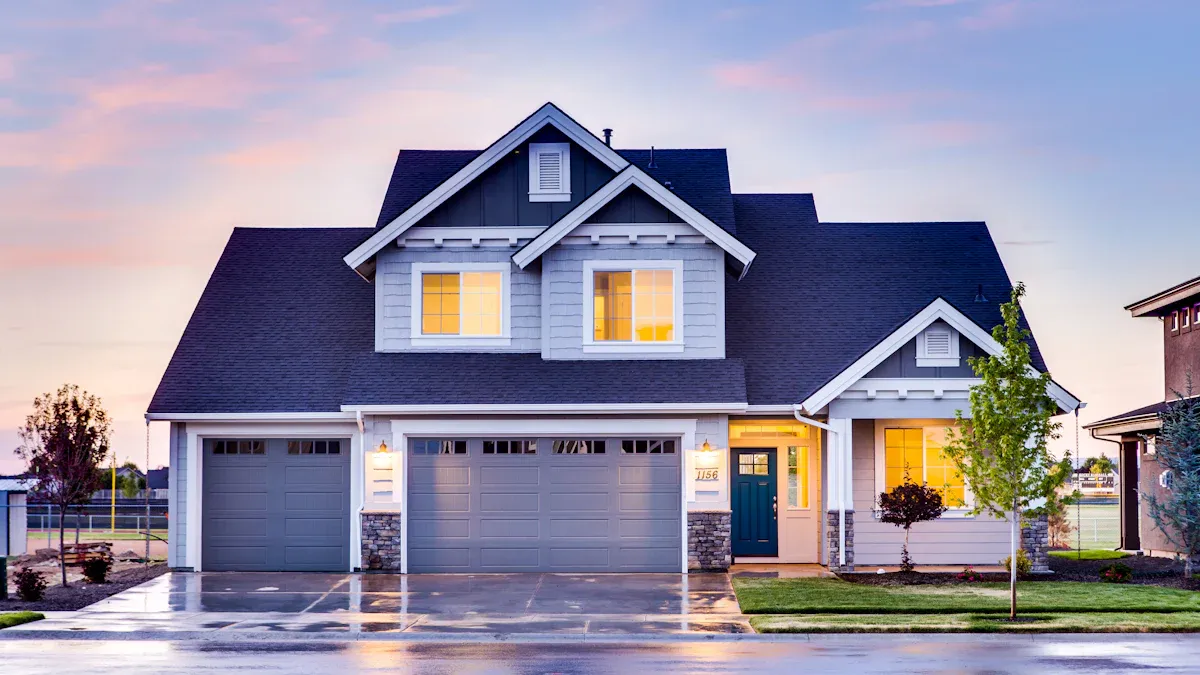
Ensuring Guest Comfort and Reliability
Travelers expect comfort and safety during their stay. Prefab House accommodations deliver these qualities through strict quality control and advanced design. Factory-built rooms use sound-insulating and fire-resistant materials. Each unit receives inspections for structure, plumbing, and electrical systems before leaving the factory. This process ensures every guest room meets high standards for comfort and reliability.
Guest rooms come fully equipped with modern amenities. These include comfortable beds, private bathrooms, air conditioning, and wireless internet. Many units also feature intelligent control systems for lighting and temperature. Professional teams manage front desk, housekeeping, and maintenance. Standardized service procedures help maintain a consistent guest experience.
Note: Prefab House designs can include accessibility features such as ramps, wide doorways, and adjustable fixtures. These features support travelers with disabilities and make accommodations more inclusive.
| Certification/Standard Name | Description/Scope |
|---|---|
| CSA A277 | Factory quality program and product certification for prefab buildings. |
| Passivhaus Certificate | Energy-efficient and passive construction standards. |
| CE Mark with ETA | Confirms compliance with EU safety requirements. |
| RAL Quality Mark | Annual German technical approval for prefab house production. |
| Green Star Certificate | Recognizes climate action and green transformation. |
Streamlining Maintenance and Operations
Prefab House solutions simplify maintenance and daily operations for travel destinations. Modular units are easy to assemble, disassemble, and transport. This flexibility allows operators to move or reuse units as needed, reducing the need for new construction. Factory-built precision means fewer repairs and less downtime.
Operators benefit from lower material waste and energy-efficient systems. Regular cleaning, HVAC sanitation, and system checks keep units in top condition. Leasing options can reduce maintenance responsibilities and costs. Modular units also adapt to different climates with proper insulation and ventilation, supporting guest comfort year-round.
- Modular units support quick site restoration for short-term projects.
- Durable materials and smart design lower long-term maintenance costs.
- Energy-efficient features help reduce operating expenses.
These advantages help travel providers maintain high standards while controlling costs and ensuring a reliable guest experience.
Tourism destinations now embrace modular construction for speed, flexibility, and sustainability. Operators deliver high-quality accommodations with smart technology and eco-friendly materials. Industry trends show rapid growth in modular hotels, floating eco-resorts, and tech-enabled stays. These innovations will shape travel experiences and destination development for years to come.
FAQ
What makes the Blue Whale Prefab House suitable for travel destinations?
The Blue Whale Prefab House offers quick installation, smart technology, and sustainable materials. Operators can deploy it in various environments, enhancing guest comfort and supporting eco-friendly tourism.
Les maisons préfabriquées peuvent-elles résister aux conditions météorologiques difficiles?
Les ingénieurs conçoivent des maisons préfabriquées avec des matériaux durables et une isolation avancée. Ces structures offrent une protection fiable contre les changements de vent, de pluie et de température dans des endroits difficiles.
Comment les maisons préfabriques soutiennent-elles le tourisme durable?
Les maisons préfabriquées utilisent des systèmes économes en énergie, des matériaux recyclés et une perturbation minimale du site. Ces caractéristiques aident les destinations à réduire leur impact environnemental et à attirer les voyageurs de l'éco-conscient.

